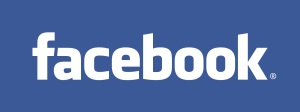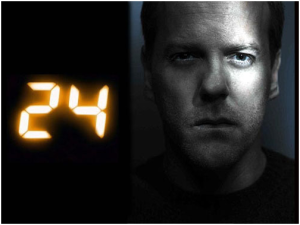Ninety years ago, the United States’ feminist movement won its first battle as women gained the right of suffrage. In 2008, the United States came closer than ever to electing a female Commander in Chief, as Senator Hillary Clinton narrowly lost the Democratic Presidential nomination and Governor Sarah Palin came within shooting distance of becoming the first female U.S. Vice President. Then, in this past Academy Awards season, Kathryn Bigelow became the first woman to win the Oscar for “Best Director of a Motion Picture,” after being only the fourth woman in history to even secure a nomination for that award. March is officially celebrated in the United States as “Month for Women.” So, why not take a look back on their miraculous voyage. But, much “progress” should be overlooked critically. Contrary to illusions that the journey to gender equality is over, no true destination has been reached.



Nevertheless, the diligent strides of the women’s movement deserve recognition. Following World War II, the right to vote alongside men no longer satisfied most women’s concept of full gender equality. As the nation boomed, and with advancements in technology, “the burdens of homemaking” decreased simultaneously as both jobs in the service industry (jobs that did not require physical strength) and also life expectancy increased (“Women’s”). Women inevitably entered the workforce, in droves. So too entered gender discrimination. The feminist movement responded by taking on a new challenge, finding a second wind, seeking to blow away the prejudices women faced in the workplace and even at home. The fight began to include the goals of eliminating discrimination in education, in hiring, in job-training opportunities, in rights to maternity leave, in workplace child-care facilities, and even gaining tax deductions for spending on child- care (“Women’s”). In an early manifestation of success, the feminist movement rejoiced as Congress passed the Civil Rights Act of 1964, which set new policies and goals for women (and minorities).
As is common with many social movements, the revolution to establish equal rights for women was not a straight-line progression. The flame flickered. After a decade of modest gains, some women’s advocates became somewhat complacent—having given birth, in the Civil Rights Act, to the new federal “Equal Employment Opportunity Commission.” With federal laws prohibiting gender discrimination, many women merely enjoyed these newly won rights and no longer needed to fight with such ferocity. Indeed, universities nationwide expanded the number of women in their student ranks and some even funded Bachelor of Arts programs in “gender studies.” And, while winning elective offices in state after state, many women also expressed their sexual liberation (“Women’s). Even so, something was still missing.
In 1986, The Wall Street Journal coined a term synonymous today for the lack of true gender equality: “the glass ceiling” (Clark). In essence, a metaphorical glass ceiling prevents women from reaching the most senior roles within most businesses and institutions. Women in the workplace exist in a pyramidal hierarchy and the government assures them of their right to attain any position, even the top. So, women develop the credentials worthy to hold these positions, they demonstrate the ability to lead, yet, their efforts are stymied by what was termed: “ the good ole boys’ clubs.”
The perception that “the boys’ clubs” perpetuated the “glass ceiling” eventually generated sufficient media attention that the federal government established a commission to explore the issue. In its 1995 report, Secretary of Labor, Robert B. Reich confirmed the reality of the glass ceiling metaphor, concluding that “at the highest levels of business, there is indeed a barrier only rarely penetrated by women” (5). The report noted that, even when women secure top positions, “their compensation is lower” although they “hold the same degrees and are in the same job categories” (Reich 6). Sadly, Reich was also correct in attesting that “the evidence [does not] indicate that the glass ceiling is a temporary phenomenon” (6). Curiously, however, some media outlets today are eager to suggest otherwise.
With much hope that the battle for gender equality can be laid down to rest, some branches of media invoke the imagery of the glass ceiling shattering. Over the past few years and recent days, the media has crafted a narrative that women have finally won it all, by breaking through in politics and even within Hollywood. As compelling as Hillary Clinton, Sarah Palin, and Kathryn Bigelow’s stories may be, these are relative rarities within their respective professions and, certainly, in American society at large. Yes, significant fractures in the proverbial “glass ceiling” are evident; but, women should continue to hammer at the ceiling until the sky becomes the limit. Especially within these two arenas—politics and entertainment—large strides must be made. Americans should be wary of, once again, prematurely declaring “Mission Accomplished” –at least in the battle for gender equality.
The twenty-first century should mark a new era for women in American politics. Indeed, the United States appears somewhat behind the times. The United Kingdom, France, Germany, Canada, Israel, India, Indonesia, Pakistan, Chile, Argentina, Liberia, and many more countries have elected women to rule over them (“Women As Top”). Although Americans elected an African American for the first time to serve as President, it was an African American man. Although Japan too has yet to elect a woman to lead its government, Takako Doi became that nation’s first female speaker of the house in 1993 (“Women As Top”). Nancy Pelosi only became the United States’ first female speaker of the house in 2007.
Perhaps most shocking is the ironic female political development that will ensue Sunday, March 14, 2010. In 2003, President George W. Bush listed a variety of justifications for engaging in the Iraqi war. As the discovery of Iraqi weapons of mass destruction became elusive, Bush retorted that humanitarian degradation, such as extreme gender discrimination, warranted an invasion. And so, the United States began its military campaign to bring freedom and equality to the people of Iraq. One by-product of the lengthy occupation has been the Americans’ insistence that the Iraqi people adopt an “American-style” constitution and that it hold elections for an American-esque legislature. Thus, as reported by the National Public Radio on March 5, 2010, “by law, 25% of Iraq’s parliament has to be female” following Sunday’s election. (Lawrence). Albeit a quota system for Iraqi women that not even ardent American feminists proposed within the U.S., the gesture is, nonetheless, profound.
How does the United States, the Iraqis’ advisor for this novel legislation, compare? In December of 2009, Jennifer E. Manning and Colleen J. Shogan compiled a briefing paper, “Women in the United States Congress” for the Congressional Research Service. In their report, they explain that the United States has “a record 93 women currently [serving] in the 111th Congress,” even after two elected women resigned from office to work within President Obama’s administration (Manning). Upon first glance, 93 women in Congress would appear somewhat sizeable. Except, there are currently 535 members of the two-chamber Congress. Thus, women only occupy 17% of seats in the United States Congress. That is 8% less representation than the Iraqi Parliament will attain this Sunday. The glass ceiling within the United States political system still seems stuck in place.
Additional studies from 2009 suggest that gender inequality still abounds within the American entertainment industry. Dr. Martha M. Lauzen, director for the Center for the Study of Women in Television and Film at San Diego State University recast the concept of the glass ceiling by creating the phrase the “celluloid ceiling” to discuss the lack of equality within Hollywood (Lauzen). Similar to glass, Hollywood’s plastic “celluloid” (sheets used for film) is transparent and this particular celluloid ceiling conveys similar notions of women’s ability to view top ranking jobs, and to possess the credentials worthy of attaining them and, yet, manifests a perennial falling short of obtaining them. Ironically, the use of celluloid in the movie industry today has become obsolete—a fitting metaphor for the way in which limitations for women in Hollywood should be outdated.
Despite the acclaim given to Kathryn Bigelow for her historic breakthrough within the Hollywood gender landscape, the entertainment industry remains near the bottom in terms of gender equality within the United States. In Dr. Lauzen’s most recent work regarding the celluloid ceiling, she reports that “of 2009’s top 250 films at box offices, women comprised only 16 percent of directors, producers, writers and other top jobs” (“Bigelow’s”). This figure is embarrassingly similar to the 17% of women in Congress. So, what does this mean? Is 17% the new ceiling? After 90 years? Is this what we are celebrating this March?
Nothing to march about, indeed. In film, the 16% statistic actually marks women’s decline in influence over the film industry as of late, for in 2001, women made up 19% of these roles (“Bigelow’s”). Lauzen finds the industry has also experienced a decrease in female directors, from the already low 9% in 2008 to 7% in 2009. The New York Times film critic Manhola Dargis points out that in 2009, Warner Brothers Pictures and Paramount Pictures “did not release a single film directed by a women. Not one” (Dargis).
Even Jane Fleming, president of the non-profit Women in Film, expressed a desire to cool the hype that followed Bigelow’s win. While optimistic for Bigelow’s ability to inspire future female filmmakers, Fleming concedes “female moviemakers lag behind their male counterparts” (“Bigelow’s”). Executive director of Women Make Movies, Debra Zimmerman, notes that there is no viable rational for this lag, as “women’s films do not make less money. When women get the same money, (to make and promote movies) they can make just as much money” (“Bigelow’s”).
In 2009, University of Southern California professor and noted film critic, Ella Taylor interviewed director Catherine Hardwicke as part of a piece on “The New Generation of Female Filmmakers.” Hardwicke directed the major studio hit Twilight in 2008 after proving her directing talent with critically acclaimed (albeit indie) action movie The Lords of Dogtown and drama Thirteen. Nevertheless, Hardwicke recalls, “After Twilight, I thought, They can’t turn me down on the grounds that my films don’t make money… [but] I put my name in the hat for two different projects, and the response was, ‘We need a guy for that movie’” (Taylor). Consequently, it cannot be about success or a director’s inability to make successful films—it is blatant discrimination against women in an industry with extremely “boyish” clubs.
So, given the reality that the “elevator” of rising equality for women is stuck somewhere short of the glass ceiling, why has the feminist movement failed to rejuvenate, to regain the zest of the 1960s-1970s?
Granted, gender discrimination is not as pervasive as in past decades. In some fields, progress has been substantial. Women not only constitute a majority within student body populations, but in 2006, the Department of Education reported that women became more likely than men to earn bachelor’s degrees (Lewin). The quantity of women is not the only matter making headlines, but the quality of female students today marks a sharp contrast to days of old. In the same report, the Department of Education cited women as also earning higher grades then men. Women disproportionately graduate with honors, again compared to male classmates (Lewin).
Although such advances in educational parity might suggest that women are converting that academic success into the real world, the statistics reveal that they are not. In a recently posted and somewhat witty expose on the “advancements” of feminism, University of Michigan communication professor, Susan J. Douglas, claims that men are far from being left in the ivy. She writes, “A year out of college, [women] earn 80 percent of what men make. And 10 years out? A staggering 69 percent.” (Douglas). As Katharine Hepburn said, in The Philadelphia Story, “advancements, my eye.” Even so, no sizable outcry exists within society to resurrect this wrong.
So, where is the outcry? Where is the resurgence of a broad-cased feminist movement? Are women generally satisfied to have only token success stories? Is it enough to have occasional heroes, like Hillary Clinton, Sarah Palin, and Kathryn Bigelow?
In 2006, Forbes published a slide show of suggestions to help women take the final leap to senior positions. The advice remains poignant today. Although success in academia functions largely on meritocracy, the business world follows a somewhat less rational process. Carol Gallagher, author of Going To the Top, points out that after finishing their work, “women… [assume] they’ll get noticed,” but instead, women should make use of networking opportunities to ensure they reach the top (Clark). Likewise, “women… need to promote themselves and their achievements” (Clark). And, sometimes receiving equal pay can be as easy as demanding it. After a client of Gallagher’s told her boss that a junior male colleague received $100,000 more than her, the boss upped her salary (Clark).
Even with such practical advice and the use of these tools, the long reach of established patterns are an obstacle to a woman’s right to achieve equality in America. Great strides have been made but today’s results are insufficient. Gender discrimination lives—and yet, another feminist movement may never occur.
The Chinese say that a long journey begins with the first step. For gender equality in America, that first step was taken 90 years ago. The journey toward shattering the glass ceiling of discrimination against women should not be abandoned simply because the steps seem harder now to take, or the destination seems too remote for us all. Reaching the destination requires persistence. Now is not the time for women to be satisfied with their current plateau of partial success. It is time for women, and all Americans who value the goal of gender equality in the United States, to continue the journey. It is simply no time to be out of step.
Works Cited
“Bigelow’s Oscars Will Change Hollywood, Slowly.” The New York Times 9 Mar. 2010: Online. 11 Mar. 2010 <http://www.nytimes.com/reuters/2010/03/09/arts/entertainment-us-bigelow.html?_r=2&scp=1&sq=celluloid%20ceiling&st=cse>.
Clark, Hannah. “Are Women Happy Under the Glass Ceiling?” Forbes 8 Mar. 2006: Online. 11 Mar. 2010 <“http://www.forbes.com/2006/03/07/glass-ceiling-opportunities–cx_hc_0308glass.html” http://www.forbes.com/2006/03/07/glass-ceiling-opportunities–cx_hc_0308glass.html>.
Dargis, Manhola. “Women in the Seats but Not Behind the Camera.” The New York Times. 10 Dec. 2009. Online 11 Mar. 2010 .
Douglas, Susan J. “Enlightened Sexism: “Women’s Success” Means It’s Fine to Resurrect — Even Celebrate — Sexist Stereotypes.” In These Times. 1 Mar. 2010. Online. 11 Mar. 2010 <http://www.alternet.org/story/145843/enlightened_sexism:_”women’s_success”_means_it’s_fine_to_resurrect_–_even_celebrate_–_sexist_stereotypes>.
Lauzen, Martha M. “Thumbs Down-Representation of Women Film Critics in the Top 100 U.S. Daily Newspapers.” Alliance of Women Film Journalists. 2009. Online. 11 Mar. 2010 <http://awfj.org/hot-topic/thumbs-down-representation-of-women-film-critics-in-the-top-100-us-newspapers-a-study-by-dr-martha-lauzen/>.
Lawrence, Quil. “Iraq’s Female Candidates, Activists or Quata Fillers?” NPR 5 Mar. 2010: Online. 11 Mar. 2010 .
Lewin, Tamar. “At Colleges, Women are Leaving Men in the Dust.” The New York Times. 9 Jul. 2006. Online. 11 Mar. 2010 <http://www.nytimes.com/2006/07/09/education/09college.html?_r=1>.
Manning, Jennifer E., Colleen J. Shogan. Women in the United States Congress: 1917-2009. Congressional Research Service, 23 Dec. 2009. Online 11 Mar. 2010. <http://www.senate.gov/CRSReports/crs-publish.cfm?pid=’0E%2C*PLS%3D%22%40%20%20>.
Reich, Robert. Good for Business: Making Full Use of the Nations Human Capital. Federal Glass Ceiling Commission, Washington DC 1995. Online 11 Mar. 2010 oasam/programs/history/reich/reports/ceiling.pdf>.
Taylor, Ella. “The New Generation of Female Filmmakers.” Elle Magazine. 21 Oct. 2009 Online. 11 Mar. 2010 <http://www.elle.com/Pop-Culture/Movies-TV-Music-Books/The-New-Generation-of-Female-Filmmakers/The-New-Generation-of-Women-in-Film-Get-more-Entertainment-News-at-ELLE.com>.
“Women As Top Politicians.” The Globalist. 16 Jan. 2007: Online. 11 Mar. 2010 <http://www.theglobalist.com/StoryId.aspx?StoryId=5908>.
“Women’s Movement.” Encyclopædia Britannica. 2010. Encyclopædia Britannica Online. 11 Mar. 2010 < HYPERLINK “http://www.britannica.com/EBchecked/topic/647122/womens-movement” http://www.britannica.com/EBchecked/topic/647122/womens-movement>.











